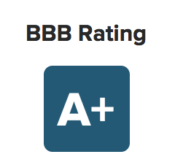
Crimes of burglary, robbery, and theft happen thousands of times a year in New Jersey. But these crimes should not be causally lumped together. If you face burglary, robbery, or theft charges in New Jersey, you need to understand that these are distinct criminal cases with their own penalties and potential defenses.
If you have been arrested or indicted and are facing charges that include allegations of stealing in New Jersey, you need to engage an experienced criminal defense lawyer to provide strong legal representation. The criminal defense team at the Law Offices of Jonathan F. Marshall is made up of lawyers with decades of experience handling theft crime cases in courtrooms throughout New Jersey.
A conviction of burglary, robbery, or theft charges can put you in prison. If you have been arrested or indicted for burglary, robbery, or theft, exercise your right to remain silent and talk to a criminal lawyer immediately. Contact the Law Offices of Jonathan F. Marshall.
What Is Theft?
Theft is taking another person’s property with the intent of denying that person the use of that property.
Criminal statutes often distinguish between grand theft and petty theft based on the value of the property stolen.
New Jersey’s theft crimes statutes rank theft offenses as follows:
Second-degree theft offense (5 to 10 years in prison, up to $150,000 fine):
- $75,000 or more in value.
- Property is taken by extortion.
- Property stolen is more than one kilogram of a controlled dangerous substance or controlled substance analog.
- Property stolen is human remains or any part thereof.
- The theft breaches the person’s obligations as a fiduciary, and the amount involved is $50,000 or more.
Third-degree theft offense (3 to 5 years in prison, up to $15,000 fine):
- More than $500 in value but less than $75,000.
- Property stolen is a firearm, vessel, boat, horse, domestic companion animal, or airplane.
- Property stolen is one kilogram or less of a controlled dangerous substance or controlled substance analog.
- Property is stolen from the person of the victim.
- The theft breaches the person’s obligations as a fiduciary, and the amount involved is less than $50,000.
- Property is taken by threat not amounting to extortion.
- Property stolen is any real or personal property related to or derived from research, regardless of value.
Fourth-degree theft offense (up to 18 months in prison, fine up to $10,000):
- At least $200 in value but not more than $500.
Disorderly person offense (up to 6 months in prison, fine up to $1,000):
- Less than $200 in value.
- Property stolen is an electronic vehicle identification system transponder [such as is used for electronic toll collection].
What Is Robbery?
Under New Jersey criminal law, an offense amounts to robbery if the person committing it:
- Inflicts bodily injury or uses force upon another.
- Threatens another with or purposely puts them in fear of immediate bodily injury.
- Commits or threatens immediately to commit any crime of the first degree or second degree.
Robbery is typically charged as a second-degree offense (5 to 10 years in prison, fine up to $150,000) unless the alleged robber commits any of the following actions:
- Attempts to kill anyone.
- Purposely inflicts or attempts to inflict serious bodily injury.
- Is armed with or uses or threatens the immediate use of a deadly weapon.
In that case, prosecutors may file criminal charges of first-degree robbery (10 to 20 years in prison, fine up to $200,000).
If you are facing criminal charges of robbery, an experienced criminal defense attorney with the Law Office of Jonathan F. Marshall can develop an effective defense strategy to respond to the charges.
What Is Burglary?
Burglary is unlawfully entering into a structure intending to commit a crime. Under NJ law, burglary includes:
- Entering a research facility, structure, or a separately secured or occupied portion unless the structure was at the time open to the public or the individual is licensed or privileged to enter.
- Surreptitiously remaining in a research facility, structure, or a separately secured or occupied portion, knowing that they are not licensed or privileged to do so.
- Trespassing in or upon utility company property where public notice prohibiting trespass is given by conspicuous posting, fencing, or other enclosure manifestly designed to exclude intruders.
The term “structure” applies to almost any type of building, including a house, store, or other commercial structure, and occupied portions of divided structures, such as apartments or business offices.
Burglary is a crime of the second degree (5 to 10 years in prison, fine up to $150,000) if, in the course of committing the offense, the actor:
- Purposely, knowingly, or recklessly inflicts, attempts to inflict, or threatens to inflict injury on anyone.
- Is armed with or displays what appears to be explosives or a deadly weapon.
Otherwise, burglary is a crime of the third degree (3 to 5 years in prison, up to $15,000 fine).
Defenses Against Theft, Robbery, and Burglary Charges in NJ
Regardless of whether you face a criminal charge of burglary, robbery, or theft, you have legal rights. To obtain a conviction, the prosecutors must prove their case against you beyond a reasonable doubt.
A skilled criminal lawyer from the Law Offices of Jonathan F. Marshall can analyze the charges against you and determine whether there are flaws in the prosecution’s case or whether police or prosecutorial misconduct has occurred, such as:
- Illegal arrest
- Illegal search and seizure
- Mistaken identity
- Faulty suspect lineup
- Racial, ethnic, socio-economic, gender, sexual orientation, age or other bias
- Lack of credible witnesses
- Faulty or fabricated testimony
- Faulty forensic testing (particularly regarding DNA evidence).
If our legal team cannot get the charges dismissed or reduced, then we will defend you in court. Potential defenses against theft, robbery, and burglary charges include:
- Inability to establish ownership of the property in question
- Inability to establish the defendant’s possession of the property
- False value assigned to property
- Lack of intent to permanently deprive the rightful owner of the property
- Defendant’s honest claim of right to the property
- Entrapment, coercion, or other inducement by another for the defendant to commit the alleged theft.
There are many opportunities to have theft charges reduced or dismissed before going to court. Sometimes, it is possible to make restitution and persuade the alleged victim to drop the charges. Nonviolent first-offenders may be eligible to enter Conditional Discharge probation or Pre-Trial Intervention. The N.J. Veterans’ Diversion program allows eligible participants to avoid trial and a criminal record.
But to make a deal happen, you need a local criminal defense attorney on your side who understands what New Jersey’s criminal justice system allows. You need a reputable criminal defense lawyer with working relationships with local prosecutors to be sure your side of the story is considered.
Contact Our Theft Crime Defense Attorneys Today for a Free Consultation
If you face charges of burglary, robbery, or theft in New Jersey, exercise your right to remain silent and call our experienced theft crime defense attorneys immediately. Our legal team will move promptly to defend your rights and obtain the best available legal outcome for you.
Don’t risk the potentially severe penalties New Jersey law allows for burglary, robbery, or theft. Contact the Law Offices of Jonathan F. Marshall now for a free consultation.











